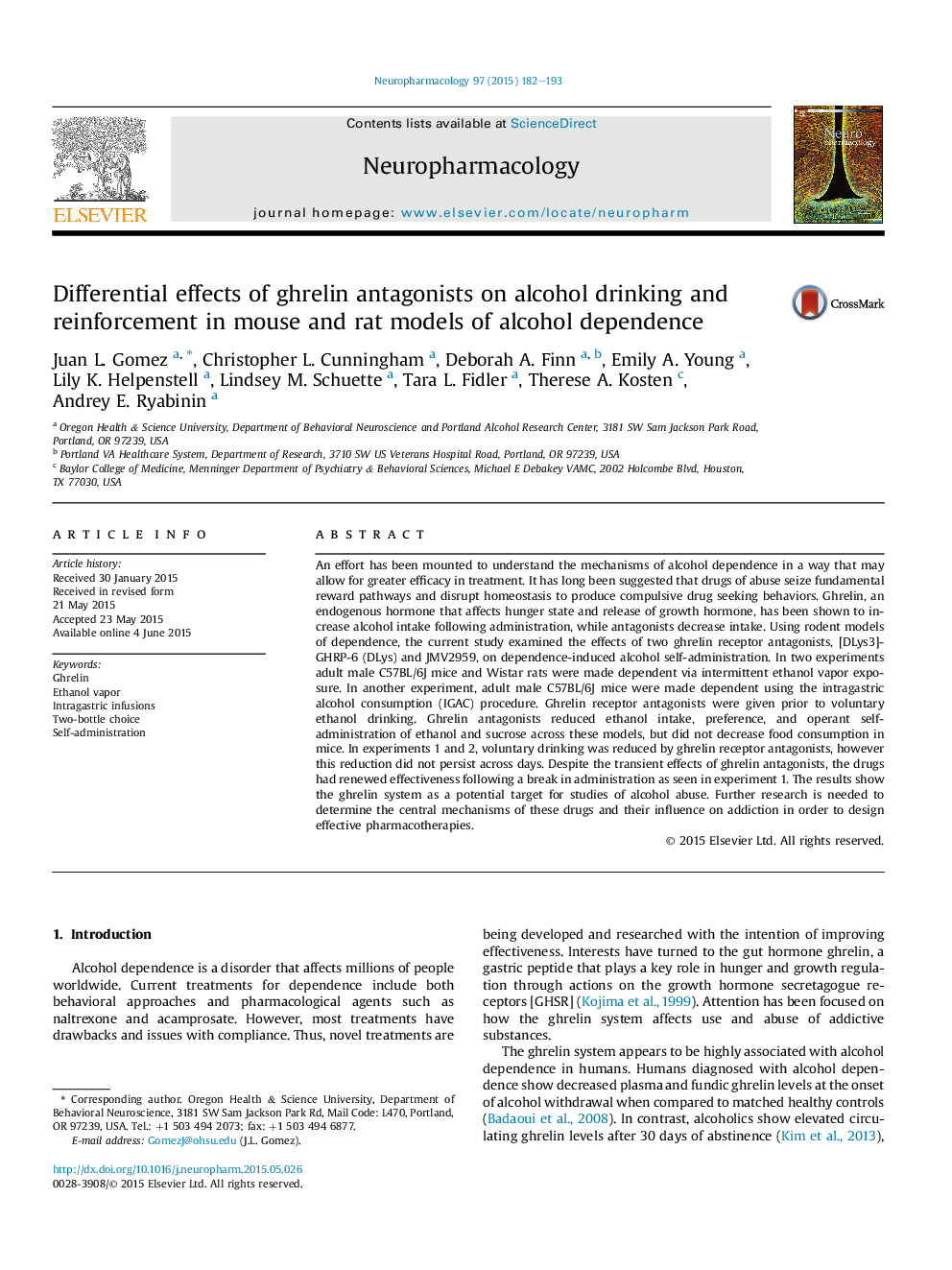| کد مقاله | کد نشریه | سال انتشار | مقاله انگلیسی | نسخه تمام متن |
|---|---|---|---|---|
| 5813960 | 1556618 | 2015 | 12 صفحه PDF | دانلود رایگان |
- Effects of ghrelin antagonism in rodents were studied on 3 models of dependence.
- Selectivity of ethanol intake inhibition was seen with DLys, not JMV2959.
- Antagonists inhibit ethanol intake following dependence induced by alcohol vapor.
- DLys inhibits ethanol self-infusion before, not after, dependence induced by IGAC.
- Antagonists loose effectiveness during repeated administration.
An effort has been mounted to understand the mechanisms of alcohol dependence in a way that may allow for greater efficacy in treatment. It has long been suggested that drugs of abuse seize fundamental reward pathways and disrupt homeostasis to produce compulsive drug seeking behaviors. Ghrelin, an endogenous hormone that affects hunger state and release of growth hormone, has been shown to increase alcohol intake following administration, while antagonists decrease intake. Using rodent models of dependence, the current study examined the effects of two ghrelin receptor antagonists, [DLys3]-GHRP-6 (DLys) and JMV2959, on dependence-induced alcohol self-administration. In two experiments adult male C57BL/6J mice and Wistar rats were made dependent via intermittent ethanol vapor exposure. In another experiment, adult male C57BL/6J mice were made dependent using the intragastric alcohol consumption (IGAC) procedure. Ghrelin receptor antagonists were given prior to voluntary ethanol drinking. Ghrelin antagonists reduced ethanol intake, preference, and operant self-administration of ethanol and sucrose across these models, but did not decrease food consumption in mice. In experiments 1 and 2, voluntary drinking was reduced by ghrelin receptor antagonists, however this reduction did not persist across days. Despite the transient effects of ghrelin antagonists, the drugs had renewed effectiveness following a break in administration as seen in experiment 1. The results show the ghrelin system as a potential target for studies of alcohol abuse. Further research is needed to determine the central mechanisms of these drugs and their influence on addiction in order to design effective pharmacotherapies.
Journal: Neuropharmacology - Volume 97, October 2015, Pages 182-193
